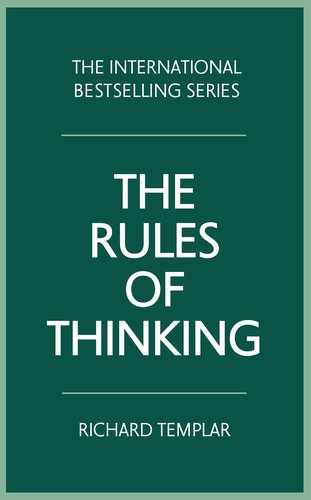You’re moving house. Money is no object and you don’t mind where you live, even abroad. You could choose somewhere really large, that maybe needs renovating. Although a little country cottage would be sweet. Or perhaps a city flat or a maisonette. Hey, it could be fun to convert a windmill! Or maybe build your own place from scratch …
How wonderful to have so many options. Except, actually, where on earth do you start? You could move literally anywhere. It would be much easier to have a few constraints really: being within an hour’s commute from work, or near your parents, or within a certain budget, or in a village, or with a garden. Of course most of us have constraints whether we want them or not, but you can see how they actually help.
Up to a point. The danger is in making the parameters too narrow. For example, maybe you need a garden. Not because you’re interested in planting and sowing and mowing and barbeques and growing your own vegetables, but because you need a garden for the dog. Perhaps, however, the perfect house for you is out there – it ticks every other box and it’s under budget – but you won’t look at it because it has no garden. That’s a real shame, because that tiny little courtyard at the back has a gate that opens straight on to a big park. Only you’ll never know what a wonderful house you missed out on, because you created a constraint you didn’t need.23
We’re back to focused thinking again, and asking ‘why’ for each of your constraints. Why a garden? Why at least three bedrooms? Why near a mainline station? Once you’ve examined each constraint, of course some of them are likely to remain in place, but others may shift. For example, the house doesn’t need a garden. It needs ‘somewhere for the dog’. That’s ideal, because it means you’re opening yourself up to more potential solutions – more houses that could work or, in other decisions, more careers to go into, more ways to sell your products, more venues to hold your wedding at.
The three most common parameters for almost any decision are speed, cost and quality. However, as you can see from the example of moving house, there are countless other boundaries you might want to set. And every one of them will make the process both easier and harder. Each one helps you shortlist, but it also risks eliminating what might have been perfect answers.
This is the time to introduce other options you hadn’t considered, like a house with no garden. Do you really need three bedrooms? Or maybe just space for when all your kids visit at once – so probably three bedrooms, but maybe some other configuration. Does the kitchen have to be big enough to seat eight round the table or would a separate dining room do the trick? Or somewhere with scope to knock two rooms together?
Whatever the decision, setting the boundaries not only saves you from muddying the process with options you don’t want, but also forces you to think smart and open up possibilities you might not have considered.
THE THREE MOST COMMON PARAMETERS FOR ALMOST ANY DECISION ARE SPEED, COST AND QUALITY
_________________________
23 It had such a spacious kitchen, too … oh, never mind.
